
views
Ketamine’s Impact on Anxiety Symptoms: Timeline

Immediate effects: Reduced anxiety symptoms within 1 hour Many people report feeling reduced anxiety symptoms within 1 hour of their first ketamine treatment. The effects included positive changes in heart rate and blood pressure, as well as mild dissociative effects leading to feelings of calmness. The exact timing of relief can vary from person to person, with some not feeling the initial effects until several hours or up to a day later. The peak effects of the treatment occur about 1 day after treatment. The initial boost is followed by a “come down” phase that lasts anywhere from 20 minutes after the peak to the rest of the day. During this time, the acute psychoactive effects disappear, but the brain remains more open to changes in thinking and behavior. Ketamine’s effects on depression have been more studied than those on anxiety. Studies have shown it can decrease depressive and suicidal ideation in patients with depression within 40 minutes.
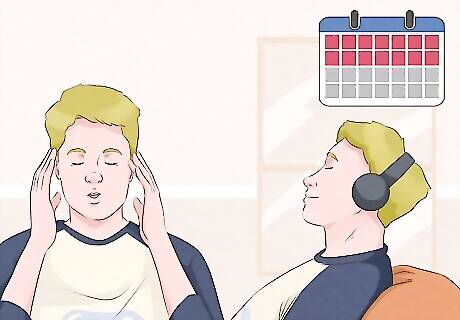
Short-term effects: Continued relief for 7-14 days After a single dose, ketamine study participants reported reduced feelings of anxiety that persisted for 7 days (even after the immediate psychoactive effects, like mild dissociation, had passed). Additional studies show that anxiety symptoms in some participants didn’t return to baseline levels until after about 14 days. In essence, one dose can “last” for 3-7 days, with lingering effects for up to about 2 weeks.

Long-term effects: Intermittent doses sustain benefits. For many patients, repeat treatments over a period of several weeks (plus less frequent maintenance sessions afterward) are needed to sustain the initial benefits long-term. More study is needed to fully understand the long-term effects and safety of ketamine therapy, but initial findings suggest that the antidepressant and anxiolytic (anxiety-reducing) effects can be prolonged with repeated regimens. Additionally, the positive effects become more robust with multiple treatments when compared to a single session. Many studies on the long-term effects of ketamine follow subjects receiving one subcutaneous dose of increasing strength per week. Most ketamine therapy practices offer weekly or biweekly doses. After an initial period of 6-8 doses, effects may last as long as 3 weeks or more per dose.
How many ketamine sessions does it take to see improvements?
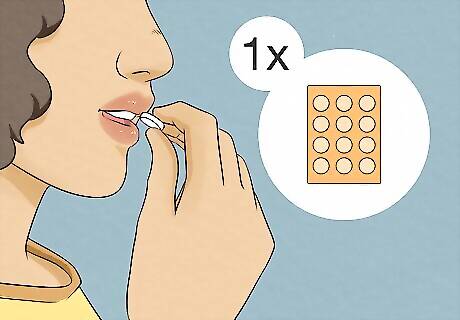
You’ll feel results after 1 session, but continued doses are needed for long-term benefits. In most cases, repeated ketamine treatments are needed to combat anxiety symptoms beyond the 7-14 day relief window that a single dose can provide. In most practices, you’ll receive a full treatment (or a smaller “maintenance” dose) weekly, biweekly, or sometimes monthly to keep anxiety at bay. The exact number and frequency of sessions needed depend on a variety of factors, including the individual’s reaction to the drug, the severity of their symptoms, and the way the drug is administered (intravenous or nasal). Some practices provide several treatments to see if ketamine is an effective option before scheduling additional doses. After an initial phase (perhaps 6-8 treatments), an evaluation is done to determine whether a ketamine “maintenance” phase should begin, or whether a new treatment option should be explored. In one study, patients reported 50% fewer anxiety symptoms 7 months after their initial treatment phase. Pairing ketamine therapy with psychotherapy increases the likelihood of lasting improvement. Your mind is more open to therapy in the hours and days following a session, potentially leading to faster relief.
Explore Ketamine Therapy with Mindbloom

Rewire your brain and transform your life with Mindbloom's at-home ketamine therapy. Looking for fast anxiety relief but not sure where to turn? Mindbloom offers premium, guided, at-home ketamine therapy through an unparalleled support system of care to deliver fast-acting mental health treatment. They’re the leading provider of at-home ketamine therapy (backed by the largest-ever peer-reviewed ketamine therapy study), with 89% of clients experiencing improvements in anxiety and depression symptoms. But don’t take our word for it. Here are testimonials from real Mindbloom patients: “Mindbloom’s resources are amazing. They have a talented and supportive team and a positive community. They’ve helped me retrain my thoughts and realize a life that I love.” —Heather L. “I'm excited to be part of this community. I was in therapy at the time I started Mindbloom, and I found it really accelerated my therapy success. My friends tell me I'm a different person since doing the treatment.” —Amelia B. “Mindbloom literally has saved my life. But it’s not just about the medicine. The program, integration practices, and integration circles have all given me hope and excitement for the future.” —Ray C.
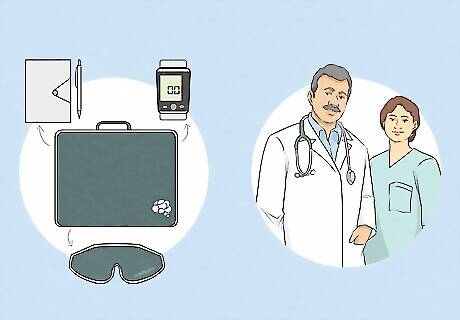
Mindbloom offers fast, life-changing care guided by licensed clinicians. Delivered from the comfort of your home, Mindbloom offers healing at your pace, in your space. Everything you need for your sessions is sent right to you, with compassionate clinicians and highly trained guides there to support you virtually at every step. Mindbloom also offers 24/7 live chat, daily Integration Circles, and an engaged online platform (at-home doesn’t mean alone!). Here’s what’s included with treatment for new clients: 2 clinician consultations to manage your progress and prescription. 6 ketamine treatments for at-home sessions. 3 guided coaching sessions to help you prepare for, unpack, and integrate your experiences. Unlimited messaging with your guide. Unlimited Group Integration Circles to connect and heal with others. Ongoing dosage support to ensure meaningful experiences. A Bloombox that contains everything you need for safe, effective, and powerful sessions. 10+ comprehensive programs with custom soundscapes, and detailed preparation and integration resources. Access to the Mindbloom App to seamlessly guide you through each step of the process.
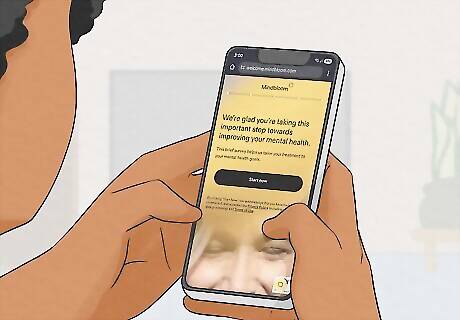
See if you’re a candidate for at-home ketamine therapy with Mindbloom. Mindbloom is America’s #1 provider of ketamine therapy for anxiety, depression, PTSD, and more. Your clinician will build your personalized treatment plan and actively monitor your progress to ensure you're getting medicine that's right for you. Schedule your consultation today and begin your healing journey toward a brighter future! Ready to take the next step? Fill out this survey from Mindbloom to see if ketamine therapy is right for you and to tailor your treatment to your mental health goals.
How does ketamine therapy treat anxiety?
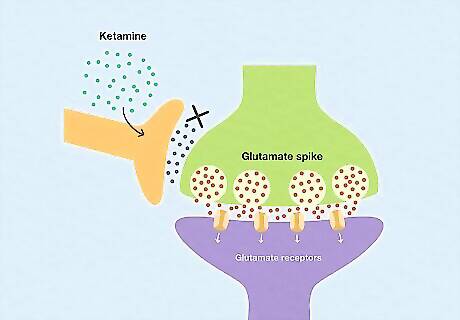
Ketamine blocks glutamate receptors in the brain associated with anxiety. Specifically, ketamine inhibits the receptors that bind to N-methyl-D-aspartate. N-methyl-D-aspartate is a glutamate, or a type of neurotransmitter released by nerve cells in the brain involved in learning and memory, pain signals, the sleep-wake cycle, and other important brain functions. Some evidence shows that elevated glutamate levels are associated with conditions like social anxiety disorder (SAD) and other anxiety disorders. By binding to N-methyl-D-aspartate receptors and blocking this glutamate, ketamine can reduce symptoms of depression and anxiety.
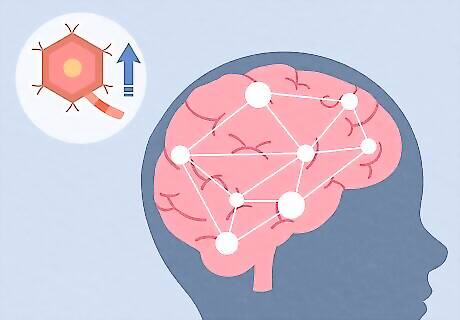
Blocking these receptors can also increase the neuroplasticity of the brain. Treatment-resistant anxiety can damage the neural connections in the hippocampus and prefrontal cortex of the brain over time. One downstream effect of ketamine binding to N-methyl-D-aspartate receptors is an increase in the brain’s neuroplasticity, or its ability to change and repair itself. This can reverse some of the damage caused by anxiety and also leave the patient more neurologically receptive to psychotherapy, increasing the effectiveness of ketamine treatment.
Who is ketamine therapy for?
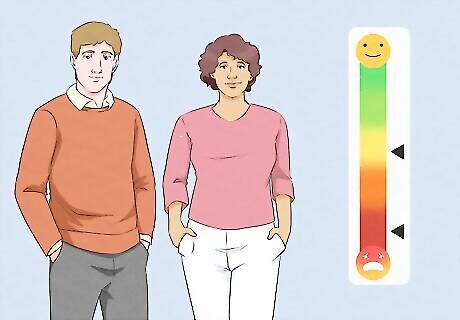
Ketamine therapy may be a promising option for adults with moderate to severe anxiety who haven’t found relief with traditional treatments. Currently, ketamine is only FDA-approved for use as an anesthetic and not to treat psychiatric conditions like anxiety or depression. However, it can be used “off-label” when traditional treatments, like SSRIs or other medications, are not effective. Ketamine is not used as a first-option treatment and is only considered when other longstanding treatments are ineffective.
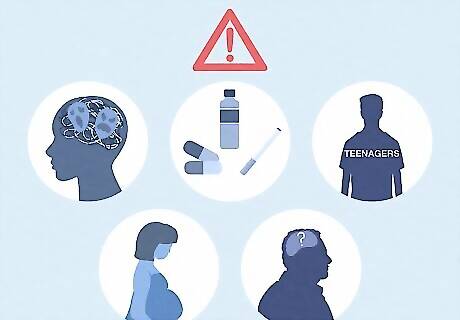
Ketamine therapy may not be safe for those with certain conditions. Always consult a healthcare provider about whether ketamine therapy is a safe or effective treatment option for your anxiety. Ketamine may be avoided or used with extreme caution for the following groups: Those with a history of psychosis or schizophrenia (the dissociation ketamine produces may make psychotic disorders worse). Those with a history of substance use disorder (ketamine can cause euphoria, and some people can become addicted to it, which is called ketamine use disorder). Teenagers (there are concerns about the long-term effects on the still-developing adolescent brain). People who are pregnant or breastfeeding. Older adults who have dementia symptoms.
Potential Side Effects of Ketamine Therapy
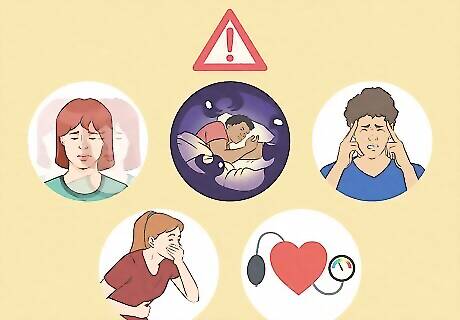
Ketamine therapy is generally safe with mild side effects during treatment. During your session, you may feel temporary effects in both your mind and body that go away once the treatment is done. Common side effects include: Feeling like you’re floating or having an “out-of-body” experience (dissociation) Euphoria or intense excitement (but not mania) Vivid dreams or nightmares Dizziness, blurred vision, hallucinations, and/or drowsiness Headache Nausea and vomiting Increased saliva (spit) Increased heart rate and blood pressure during the treatment Brief changes in motor skills, like poor balance or lack of coordination



















Comments
0 comment